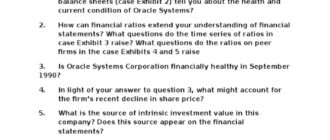One of the most difficult, most frightening forms of poetry is that of the Sestina. Most poetry is currently written for free, regardless of structure and rules, but that is part of the evolution of poetry. The Sestina, like the Sonnet or any other form uses such strict rules to focus the mind away from any of the other aspects. If you focus hard enough at one point, the others just fall into place a little.
In addition, it is much more impressive to produce artwork from such strict guidelines. The Sestina is one of the most repressive forms, not because of meter or verse, or parets, but because of six simple words.
So here’s the form. Choose six words, multi-talented words. Words usable as nouns, verbs, adjectives. A word that can be pluralized and used in past and future tenses. These words will be used a lot, so keep them relaxed and agile. If you choose something long and multi-yellow, this will be difficult.
Your sixth is 39 lines, six stanzas of six lines, and a seventh of three. Each line is a white verse with a variable meter between four and six bars. The end of these lines marks one of your six words. The order of the words is also important. Here is a sestina written by Rudyard Kipling, one of the better known Sestina (and a better written one I might add):
Generally speaking, I tried them all
The ‘beautiful roads that lead you to the world.
Generally speaking, I found them good
For those who can’t use one bed too long,
But it must be done, as I did,
“Go watching” things until they die.
What matters is where we have to die,
As long as we have our health to watch everything
The different ways different things are done,
Men and women loved in this world;
Having our chances as they come,
When they don’t pretend, are they good?
In money or credit no, it is nothing good;
You must ‘have the’ abit or you would die,
Unless you lived your life only one day,
Neither prophesied nor grieved;
But you pulled your handkerchief somehow out of the world,
‘Never bothered with what you might have done’.
But, Gawd, what things have I not done?
I turned mine ‘and to most, and’ turned it good,
In various situations around the world
Because that doesn’t work, he certainly has to die;
But that’s no reason for a man to work with everyone
– Isn’t life in one change so long.
Therefore, from job to job I moved.
Paying couldn’t make me old when my time was up,
Because something in my affair upset everything,
Until I discard everything definitive,
In the sea, if the dock lights die,
An ‘met my companion the wind that wanders the world!
It’s like a book, I think, this flowering, world,
What can you read and take care of only so long,
But now you feel you are going to die
Unless you get the page, you’re done,
An ‘turns another probably not so good;
But what you mean is to turn them all over.
Gawd bless this world! Whatever she did
Except when for a long time I found it good.
So write, before I die, “‘E liked everything!”
Kipling’s six words are “everything, world, good, done, good, die”. You will notice that they are short, simple words that do not necessarily appear overwhelming to the reader, so the fact that they have read each word seven times across the 39 lines is not immediately visible. In the first stanza he uses the words in the order mentioned. In the second stanza, you use first word six, then word one, five, two, four and three.
6
1
5
2
4
3
Using the previous verse for each new verse, you follow the pattern above. It’s like a math problem with a repeating formula. The key to the Sestina, however, is not in the formula. If you can’t clear the formula, why bother writing it. No, the key is to make it sound as natural as possible without giving up the shape.
I found that writing a kind of story makes it easier. It also requires reuse of certain words. Similarly, when writing, use simple language. Don’t sound floral and poetic. Tell a simple story in simple words, and make it interesting. Also, don’t use every word the same way every time. You see, Kipling uses together instead of long or all instead of all. It seems that another word is used even if it is not.
If you can go through the first six stanzas, you present the seventh and the task of using all six words, this time in the order along three lines. And often this is some kind of conclusion, as if to an essay summarizing the story from your poem. But don’t let it be just a summary. Keep it in line with your tone and progress. If you ever repeat yourself in this form, you have failed the form and left your readers.






